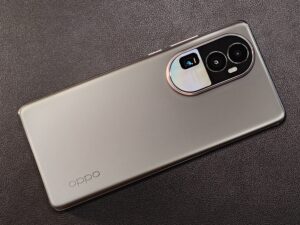Clinicians in Singapore can soon make use of summarised clinical notes and automated responses to queries on healthcare protocols created by a generative AI, after Integrated Health Information Systems (IHiS) inked a deal with Microsoft last week.
Through this, Singapore’s technology agency for the public healthcare sector plans to develop Secure GPT for healthcare professionals, powered by Microsoft’s Azure OpenAI Service to enable healthcare workers to generate insights and automate tasks more efficiently.
The agency will make use of Large Language Model (LLM), with model building guided by “responsible AI” to enable the secure handling of personally identifiable information (PII) and protection of user data.
The Azure OpenAI Service promises to enable the model to generate contextual answers from a healthcare knowledge base in a secure way that is in compliance with healthcare data residency requirements.
Examples of queries that Secure GPT can answer are: “What are the care protocols for diabetes?” or “What are the payment subsidy rates?” The answers will be based on summarised information from the consolidated source documents in the knowledge base.
For medical records, Secure GPT can generate condensed patient information from physician clinical notes and laboratory reports in electronic medical record systems, and to track medication changes and usage. This saves doctors the time and effort of reading and processing numerous lengthy clinical notes.
The prompt engineering library and templates on the Azure platform and OpenAI models are expected to help accelerate healthcare generative AI development.
Plus, the ability to connect to other systems through Application Programming Interfaces (APIs) will encourage knowledge cross-sharing and application interoperability to improve clinical and operational insights.
“The intelligent collaboration tools on cloud and AI-powered platforms will not just deliver greater convenience to clinicians, it will enable better focus on patient-centric work and change the way individuals take control of their health and health outcomes”, said Ngiam Siew Ying, the chief executive officer of IHiS.
This is not the first collaboration between IHiS and Microsoft. So far, they have developed Health Discovery Plus (HD+) that has been used by more than 10,000 patients at polyclinics and public hospitals, which run on Azure. It is available as a mobile app with an integrated chatbot, and as a kiosk with multi-language support.
During the COVID-19 pandemic, the initial version of HD+ had a smart clinician dashboard that flagged anomalous indicators, and allowed pre-defined SMS messages to be sent via a single click – enabling a lean healthcare team to track the health of thousands of quarantined patients.
Growing popularity
The increasing popularity of generative AI could reshape businesses. Some 70 per cent of Asia-Pacific industry leader are either exploring generative AI use cases or already investing in them, according to an IDC report.
“Gen AI holds immense potential for CX [customer experience]. Experimenting with this technology will also help determine which use cases – customer facing or employee facing constitute the greatest value for a specific business model,” said Lavanya Jindal, a market analyst for customer experience and enterprise applications at IDC Asia-Pacific.
According to the research firm, the top five use cases for generative AI in the region are knowledge management, code generation, marketing, conversational, and design.
When it comes to improving customer experience, knowledge management, marketing, and conversational applications are of greatest value, it suggests.






